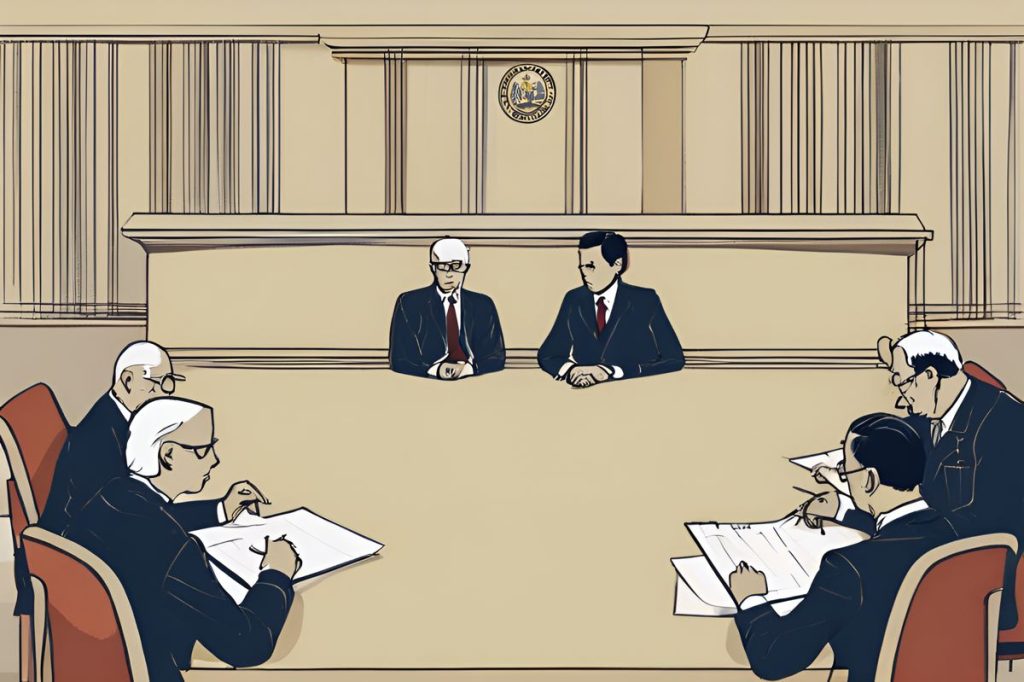The government faces allegations of hiring high-paid presidential advisers involved in potentially deceptive practices, prompting scrutiny over transparency and adherence to disclosure laws. In response, the government defends its procedures, highlighting its commitment to transparency and compliance with existing regulations regarding adviser details shared with parliament and the audit office.
What are the allegations against the presidential advisers and the government’s response?
The allegations involve high-paid presidential advisers potentially crafting fake social media profiles to discredit critics, lacking transparency in hiring processes, and not adhering to disclosure laws. The government responded by highlighting their commitment to transparency, stating that adviser details were shared with parliament and the audit office, and defending their procedures as compliant with the law and dedicated to meritocracy.
Uncovering the Allegations
The presidential palace recently found itself in hot water over the alleged employment of high-paid advisers. Questions were raised concerning the transparency of these hirings, particularly in relation to one adviser who supposedly had been crafting fake social media profiles aimed at discrediting government critics. This controversy has caught the attention of political adversaries and is slated for discussion at an upcoming House ethics committee meeting, anticipated to occur on either July 3 or July 10. The meeting’s attendees will include officials from the presidential palace, who are expected to address these pressing concerns.
At the heart of the discussion is the government’s compliance with legislative requirements to disclose the identities, salaries, and qualifications of advisers to either ministries or the presidential palace. Demetris Demetriou, a Disy MP who also leads the house ethics committee, proposed this agenda item. His advocacy for transparency highlights an accountability that the public office is expected to uphold, especially considering the consultants’ significant salaries, which reportedly cost the state around €67,000 a month for 25 consultants.
Government’s Response
In a surprising twist, government spokesman Konstantinos Letymbiotis responded to the allegations by stating that the list of advisers had already been shared with the parliament by June 17, 2024, a step that was not mandated by the relevant legislation. He emphasized the government’s commitment to transparency and suggested that the opposition’s demands were unfounded and populist in nature. Furthermore, Letymbiotis pointed out that the list is also in the possession of the audit office, further demonstrating the government’s willingness to be open and compliant with existing regulations.
The issue of data privacy was cited as the reason for not posting the adviser details on the presidency’s website. Letymbiotis also noted that the practice of disclosing parliamentary consultants is not legally required, yet the government took the initiative to establish a clear framework for the recruitment of consultants. He concluded by defending the administration’s transparent procedures and its dedication to good administration and meritocracy.
The Backdrop of the Legislative Framework
The legislative context surrounding these events is significant. The law concerning the transparency of government consultants was passed by parliament on February 29, 2024, and was introduced by the current government. Despite the passage of this new legislation, accusations have emerged that the presidential office may not be fully adhering to its stipulations. Specifically, the law requires the disclosure of hired consultants’ names, qualifications, contract lengths, and salaries on the presidential website to promote transparency and public accountability in these appointments.
These issues were brought to the forefront again when Disy’s Demetriou submitted a letter calling for an examination of the law’s implementation. The intent, as stated in the letter, was to ensure that the new act was being followed correctly and to identify any potential shortcomings in its execution. The ongoing debate suggests a tension between the proclaimed transparency of the government and the perceived lack of full disclosure, partially fueled by past accusations against President Nikos Christodoulides during his presidential campaign.
By addressing the allegations head-on and ensuring that all voices are heard during the House ethics committee meeting, the government hopes to demonstrate its commitment to transparency. However, the allegations have stirred a considerable debate over the role of advisers, the use of public funds, and the integrity of the process, which remains a topic of public interest.
What are the allegations against the presidential advisers and the government’s response?
The allegations involve high-paid presidential advisers potentially crafting fake social media profiles to discredit critics, lacking transparency in hiring processes, and not adhering to disclosure laws. The government responded by highlighting their commitment to transparency, stating that adviser details were shared with parliament and the audit office, and defending their procedures as compliant with the law and dedicated to meritocracy.
When is the House ethics committee meeting scheduled to discuss these allegations?
The House ethics committee meeting to discuss the allegations against the presidential advisers is anticipated to occur on either July 3 or July 10. Officials from the presidential palace are expected to attend the meeting to address the concerns raised.
What legislative requirements are in place regarding the disclosure of government consultants’ details?
The law concerning the transparency of government consultants, passed on February 29, 2024, requires the disclosure of hired consultants’ names, qualifications, contract lengths, and salaries on the presidential website. This legislation aims to promote transparency and public accountability in government appointments.
Why did the government not post adviser details on the presidency’s website, citing data privacy concerns?
The government spokesperson cited data privacy concerns as the reason for not posting adviser details on the presidency’s website. Additionally, he noted that while the disclosure of parliamentary consultants is not legally required, the government took the initiative to establish transparent procedures for the recruitment of consultants and shared adviser details with parliament and the audit office.

